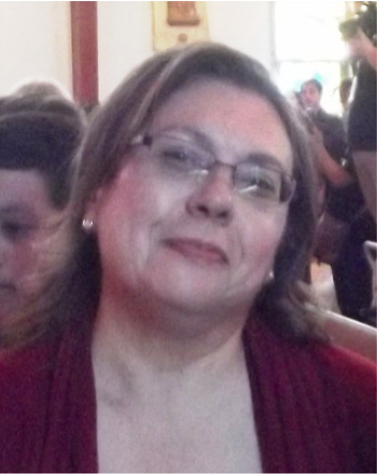Religious Relativity Americans Seem More Religious Than Other Western Powers
- Profiles in Catholicism
- Jun 22, 2018
- 4 min read
by Carmen Julia Rodríguez Torres

“Sixty percent (60%) of Americans say that religion is “very important” to them; only twenty one percent (21%) of Western Europeans say that.”
A series of surveys conducted lately at America and Europe seem to imply that there is a correlation between financial stability accompanied by a high degree of formal education and the degree of religious fervor observed in many countries at both sides of the Atlantic. According to that premise, if you do not feel secure in your economic environment, you might tend to hedge your bets by praying for Divine Providence. Maybe so… yet I cannot help but to think about the historical difference in the approach followed by most Americans and Europeans when trying to explain – and live by – their particular relationship with the Creator – or lack of it.
First let us consider how Europeans became Christians. The Roman Empire persecuted Christians with great glee. Emperors used them as scapegoats for everything that went wrong in the Empire. The more they persecuted Christians, however the more they seemed to proliferate until Emperor Constantine had the vision that prompted him to convert to Christianity. Well, I was not there so I cannot say if he was sincere or not. Whatever the case, reality is that by doing the expedient, political thing – even his mother was a Christian – he probably began at that moment the tragic religious conversions charade which characterizes Europeans’ complicated collective history.
Theocracies, holy empires – I know, a case in contradiction – protestant reformation, puritanical counterreformations… and let us not forget the Muslim empires growling at the frontiers. Spain is a good showcase for the religious charade imposed on Europeans throughout the centuries. Hispania under the Roman Empire, mostly pagan under the Visigoths, increasingly Christian under the Holy Roman Empire, Spain succumbs to the invasion of the Umayyad Muslim Empire in the Middle Ages. For hundreds of years, Al-Andaluz (as Spain was known among the Muslims) found a singular, politically expedient way to deal with the “infidels.” If they were not inclined to convert to Islam, they could simply accept their second class status by paying a tax to the Caliphate that allowed them to follow their ways at their own communities. Clever, yet not even that profitable arrangement held for long since more rigid, fundamentalist Muslim factions kept coming in and going out of power until the Catholic King Ferdinand of Castile and Queen Isabella of Aragon united the kingdom – España – and gave the “infidels” just two options: become a Christian or die.
Perhaps no other ethnic group better personifies the significant trauma this religious charade inflicted on Europeans’ psychological well-being than the Jewish People. Sepharad (as Spain was known to the Jews since the times of the Roman Empire) was the closest thing to Heaven on Earth, not only for Muslims and Christians, but for the many Jews who called it home. For almost one thousand years Jews paid the taxes to the empires for the privilege of discreetly following their faith while balancing the contradictory demands imposed on them by their lot on this earth. All of that came to dust and ashes for Muslims and Jews when the Catholic King and Queen of Spain issued their ultimatum at the end of the XV century. Fortunately, a relatively unknown sailor – Christopher Columbus – stumbled upon a new route to India – or so he thought – and gave the Sephardic Jews an escape route into the unknown…
The same escape route many other Europeans, running away from the ethnic wars’ horrors at their homelands, would follow for generations to a place that we call today America. They came, not only for the chance of a better life, they came as well with the hope of finding the freedom to worship God their particular way. They still come: Pagans, Buddhists, Jews, Christians, Muslims, Agnostics… or just plain “infidels.” In spite of the hardships, they all come to be free.
So, even though I do not discard the notion of hedging your bets in uncertain circumstances, I tend to favor nonetheless the belief that, when people are free to choose their particular course of action, they usually choose what is right. Nothing is guaranteed at this realm where the only reality is change. Still the more things change, the more things stay true to their nature. We do not step into the same river twice, but any river remains a river when it is free to flow towards the sea no matter how many obstacles are thrown onto its path.
Make no mistakes about it, we live in no less challenging times, the difference is that in America, more likely than not, we have choices instead of ultimatums. In these unnerving times when you cannot watch the news without fearing to hear about another natural calamity, another act of terror, another massacre, it is validating to watch a group of young people - survivors themselves of senseless violence - sing about their particular choice:
“In that day the wolf and the lamb will live together;
the leopard will lie down with the baby goat.
The calf and the yearling will be safe with the lion,
and a little child will lead them all.”
Isaiah 11:6
AMEN!
